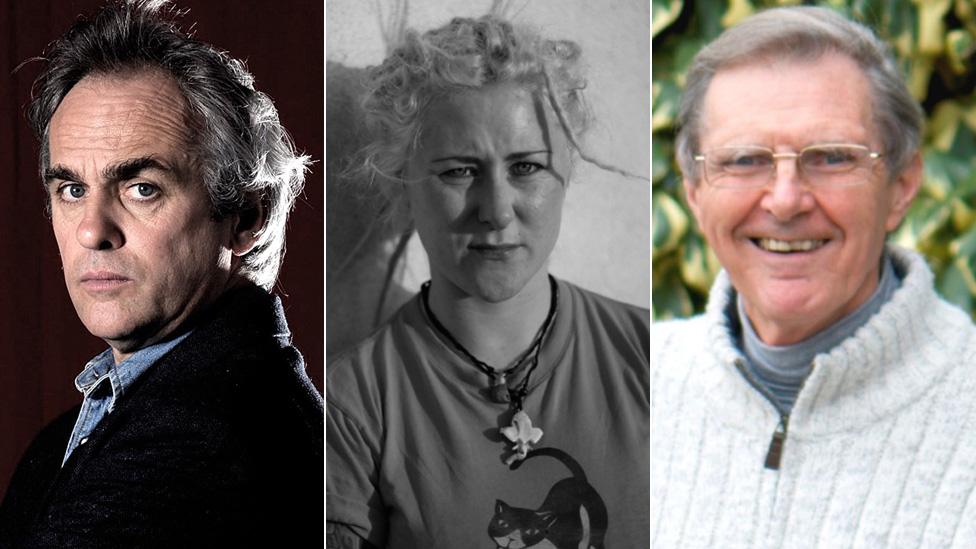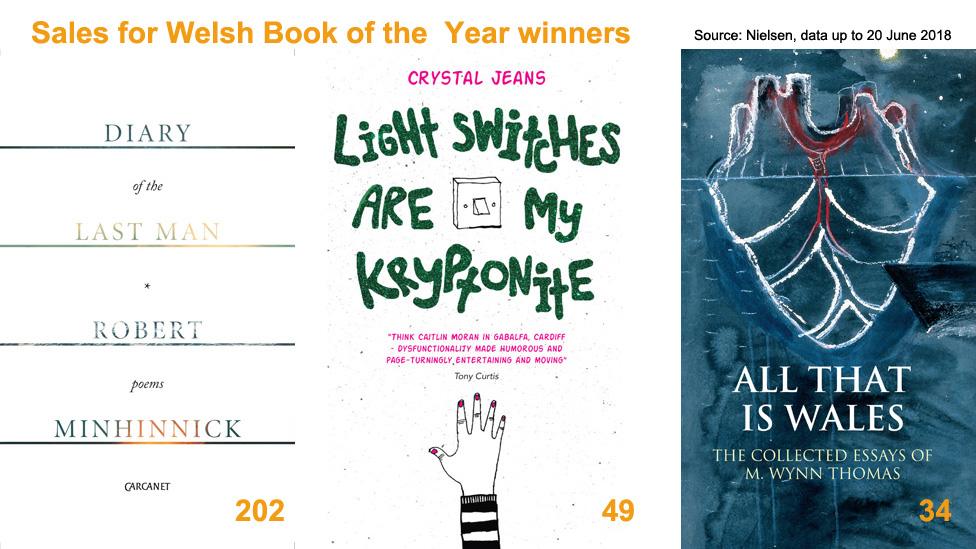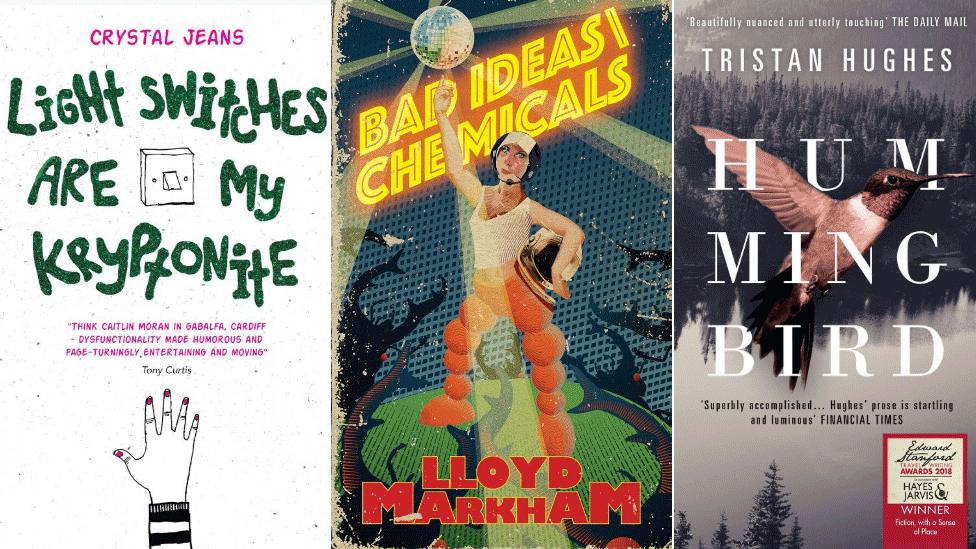Wales Book of the Year publishers dispute sales figures
- Published

Award-winning authors Robert Minhinnick, Crystal Jeans and M Wynn Thomas
Publishers have disputed official sales of their books after data suggested some works sold as few as 20 copies.
Some authors and publishers say the figure recorded by Neilsen does not take into account the sales at smaller book shops and fairs.
This can lead to hundreds of book sales not being recorded in official data.
The dispute emerged as official figures showed almost half of the books shortlisted for the Wales Book of Year award had sold fewer than 100 copies.
Nielsen, which provided the sales data for the shortlisted books up until 20 June 2018, is the global authority on book sales and includes bookshops and online sales in its figures.
And according to the figures, poet Robert Minhinnick, who won the overall prize for the third time for Diary of the Last Man, inspired by a walk across a changing Britain, has sold 202 copies.
The best-selling book sold almost 4,000 copies, according to the figures.
The Wales Book of the Year event saw the English and Welsh language prizes awarded at a ceremony in Cardiff on Tuesday night.
Award organisers Literature Wales said it hoped involvement in the prize would help all shortlisted authors over the course of the year.
But the managing director of Y Lolfa, Garmon Gruffudd, said: "All of the shortlisted books published by Y Lolfa have sold more than 600 copies, and we have already reprinted three of them - Meddyginiaethau Gwerin Cymru, Blodau Cymru and Gwales.
"Sales have been very good from our perspective."
He said he believed "the majority of sales" at smaller Welsh bookshops were not recorded by Neilsen's systems.
BBC Wales has been criticised for giving too much weight to Neilsen's figures.
A spokesman for BBC Wales said that "while the data used in the article came from an official industry source, we acknowledge it didn't capture all sales figures".
It added: "There was no intention to mislead."



Lleucu Siencyn, the chief executive of Literature Wales, said she hoped being part of the prize could help sales in the long term.
"We can work quite closely with the publishers themselves on the impact on winning the award," she said.
"And on the shortlist, perhaps it's early days to look from the announcement of the ceremony - it's deliberately quite short.
"So we would hope that sticker and being part of the shortlist would last for the length of the year."
Wales Book of the Year winner Robert Minhinnick implores more people to read, buy and write books
Lloyd Markham's book, Bad Ideas/Chemicals, which was shortlisted in the fiction category, sold 20 copies, according to the Neilsen figures.
But its publisher Parthian said the book had sold "significantly more" copies than the official sales data suggested.
The lowest sales figures on the Welsh language shortlist were for Hefin Wyn's non-fiction book, Ar Drywydd Niclas y Glais, which sold 43 copies.
A biography of the artist and poet David Jones sold almost 4,000 copies, while the best-selling book in Welsh was a collection of poetry which sold 196 copies.


Ms Siencyn said while sales figures were one measure of success, it was important to recognise the cultural value of publishing books of Welsh interest.
"In the end, it's about cultural value. Of course it is important that publishers like Y Lolfa and authors like Goronwy Wynne have some sort of sustenance from their work, on top of that.
"But I think this (Wynne's book) will be a work that stands the test of time, and I look forward to this volume being reprinted several times, and that people in decades to come will enjoy reading it."
Independent bookshops in Wales received a grant from the Welsh Books Council to help promote this year's shortlist.
The manager of Octavo's bookshop in Cardiff Bay, Hazel Cushion, said the marketing help had been well received - but more needed to be done.
"You have to remember that most books in Wales, produced by Welsh publishers, are probably not selling in very high numbers," she said.
"However, I think it is all about raising the profile of them, getting people to know about them.
"The best possible marketing is word of mouth.
"So if we could engage reading groups more, perhaps giving out free extracts in newspapers, things like that would give us more opportunity to engage people in the books."
Ms Cushion, who also runs the publishing company Accent Press, warned against feeling "downbeat" about the sales figures.
She said: "Not all bookshops report to Nielsen, a lot of the smaller Welsh bookshops certainly wouldn't. We do, but a lot wouldn't.
"There's also a lot of direct sales at events and things like that, so I don't think people should be too downbeat if the sales figures seem quite low."
- Published11 May 2018

- Published10 May 2018
